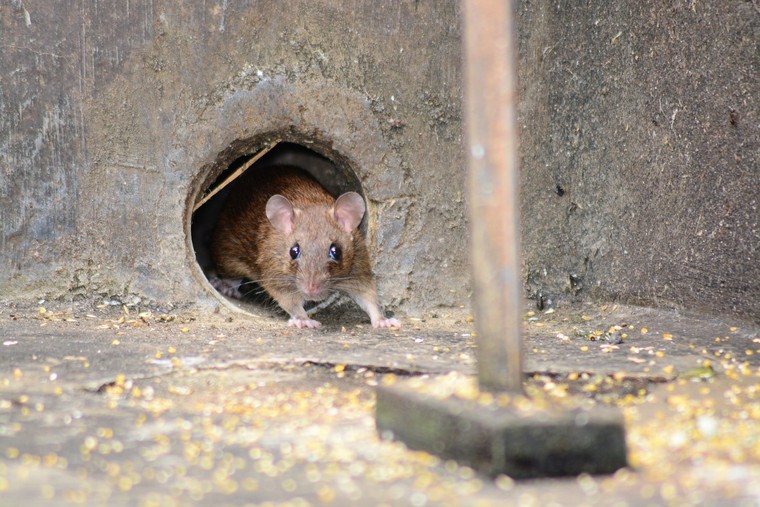National trade body the British Pest Control Association (BPCA), is advising rural businesses to put in place a few simple measures before colder weather drives rats and mice to seek shelter indoors.
As winter approaches, some rats and mice will be forced out of their nests and will seek somewhere warm near a source of food and water.
BPCA advises taking a ‘prevention is better than cure’ approach and taking steps now to avoid a small pest presence spiralling into a major infestation.
Technical Manager at BPCA, Natalie Bungay, said: “Good yard maintenance is a major factor in deterring rats and mice from moving in for the winter.
“The aim is to remove all the things they need, such as shelter, warmth, food and water, so your property is not an attractive home for them.
“The first step is taking just 10 minutes to stand in your yard and look around with a critical eye – are there some obvious steps you can take to make your property less hospitable to rodents?”
To help farmers protect their premises from rats and mice, BPCA have put together ten top tips on yard maintenance:
- Take 10 – put aside 10 minutes each day to do a quick check on your yard and outbuildings
- Put a lid on it – one of the easiest ways to scupper rats on the hunt for food is to ensure animal feed of any kind is stored in a container with a securely fastened lid.
- Bag it and bin it – waste should be bagged and binned, with bin lids securely fastened or weighed down. Don’t leave bin bags piled up next to the bin – this is basically a playground for rats.
- Clean sweep – debris, spilled food, hay or straw can provide a food source and shelter for rats as they move around. A well-swept or cleared yard leaves them exposed and removes a possible food source.
- Cats and dogs – make sure food for any cats and dogs isn’t left lying around. Rats and mice may attempt to steal it and in doing so, could contaminate it.
- Hedge your bets – hedgerows, brambles and untended vegetation are ideal places for rats to shelter, so ensure these are regularly cut (except during nesting season) and kept tidy.
- Cap it off – rats will travel through drains, so all drains should be covered and unused pipes capped off.
- Put in place – examine the layout of your yard. If your bins are next to an open drain and below a shed window, you could have created the perfect route for rats to sneak inside on the hunt for food.
- Proof it – Rats and mice are extremely agile and can squeeze through tiny gaps. Make it difficult for them to enter your home or outbuildings by checking for any small gaps (often around windows and doors, pipe and cable entry points or under the eaves) and fill them with a mix of wire wool and quick-drying cement.
- Spot the signs – a quick check for signs of rodents in your yard and outbuildings will help you spot a potential problem early on. Look for clusters of faecal pellets near bins or food stores, footprints in dusty areas and gnaw marks.
Natalie added: “Rats and mice can carry a number of diseases including listeria and salmonella, which they can spread to humans through contact with their urine in food preparation areas.
“They can also contaminate animal feed, cause distress to livestock and chickens and land farmers with a hefty repair bill.
“Both rats and mice will gnaw to keep their teeth in good condition, and have been known to gnaw wood, metal, cinderblock, pipes and cables. Structural damage, floods and fires have all been attributed to rodent activity.
“Rats and mice have rapid breeding cycles, which means a nesting pair moving onto your property can quickly become a major infestation.
“BPCA recommends calling a pest professional to deal with an infestation quickly and safely, while protecting non-target species.”
BPCA members are trained, experienced professionals with access to a range of specialist products not available to the public.
They are trained, qualified and regularly assessed to the British Standard in Pest Management BS EN 16636.
To find a professional pest controller visit bpca.org.uk/find




